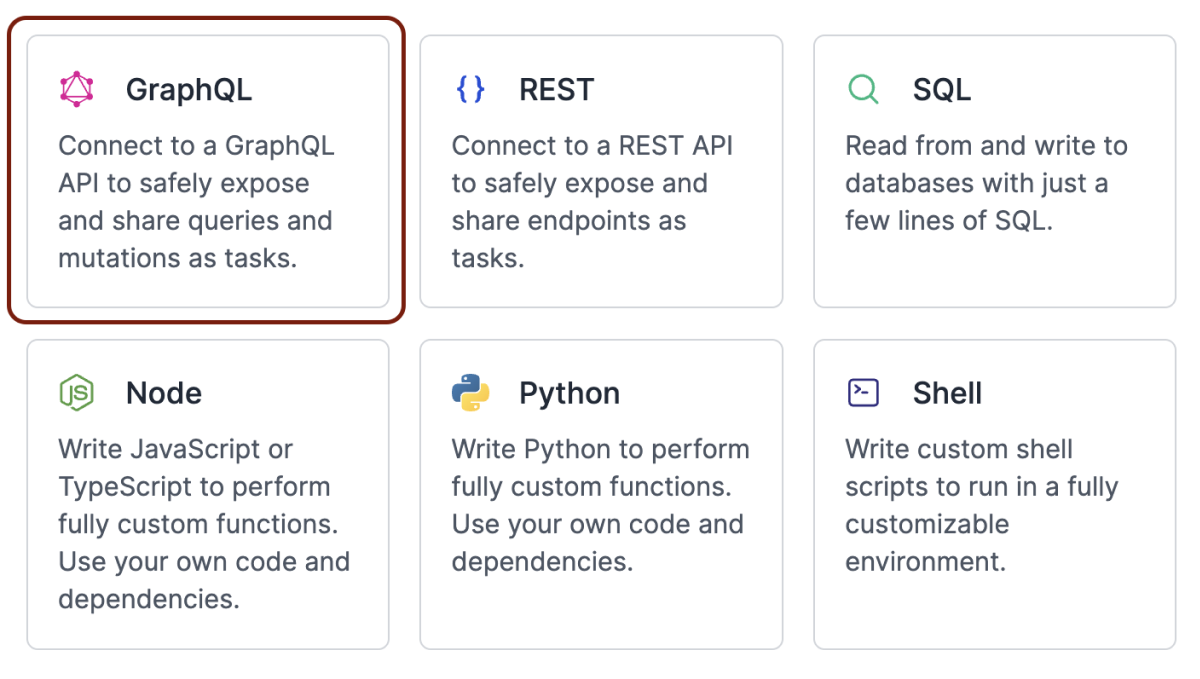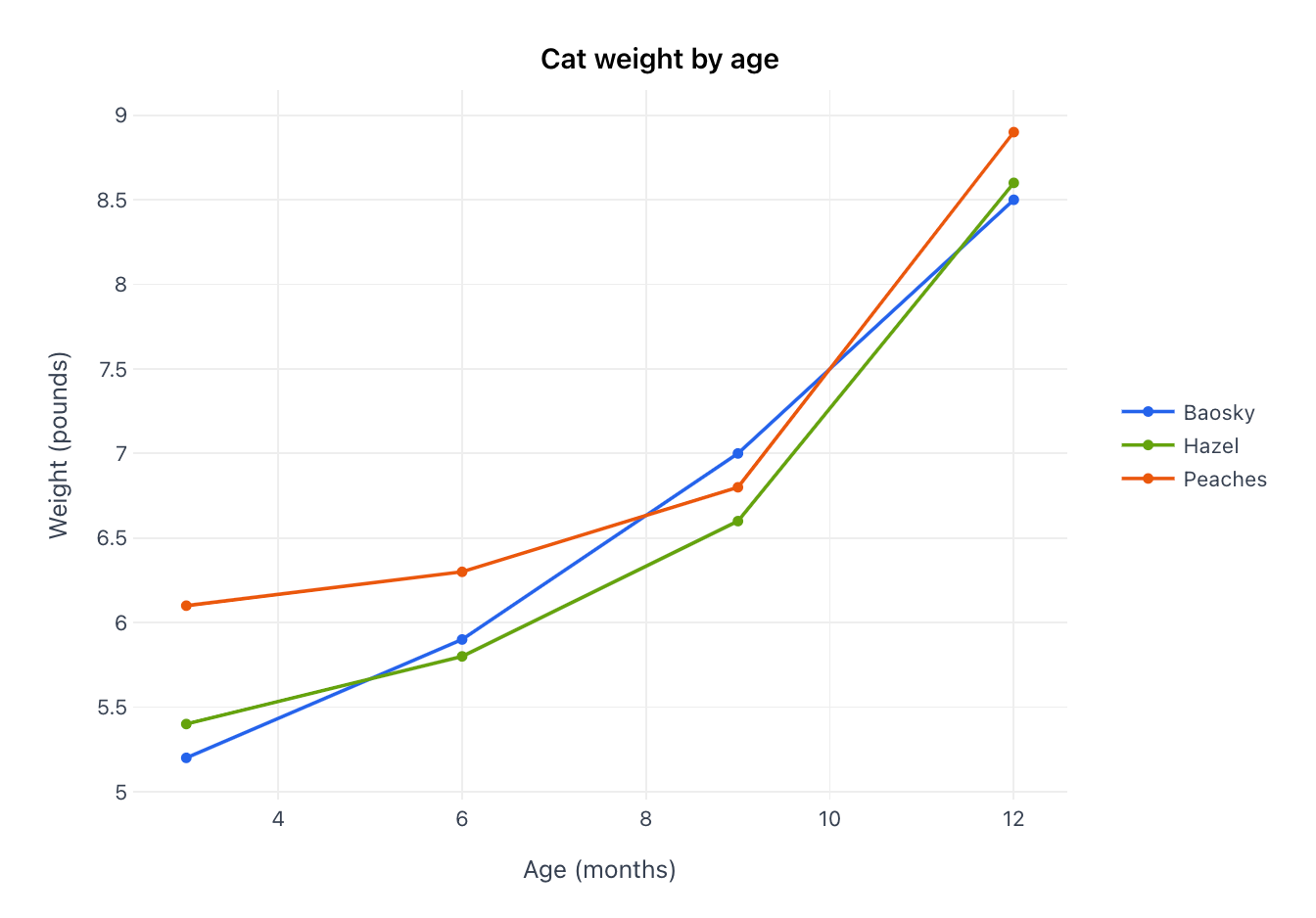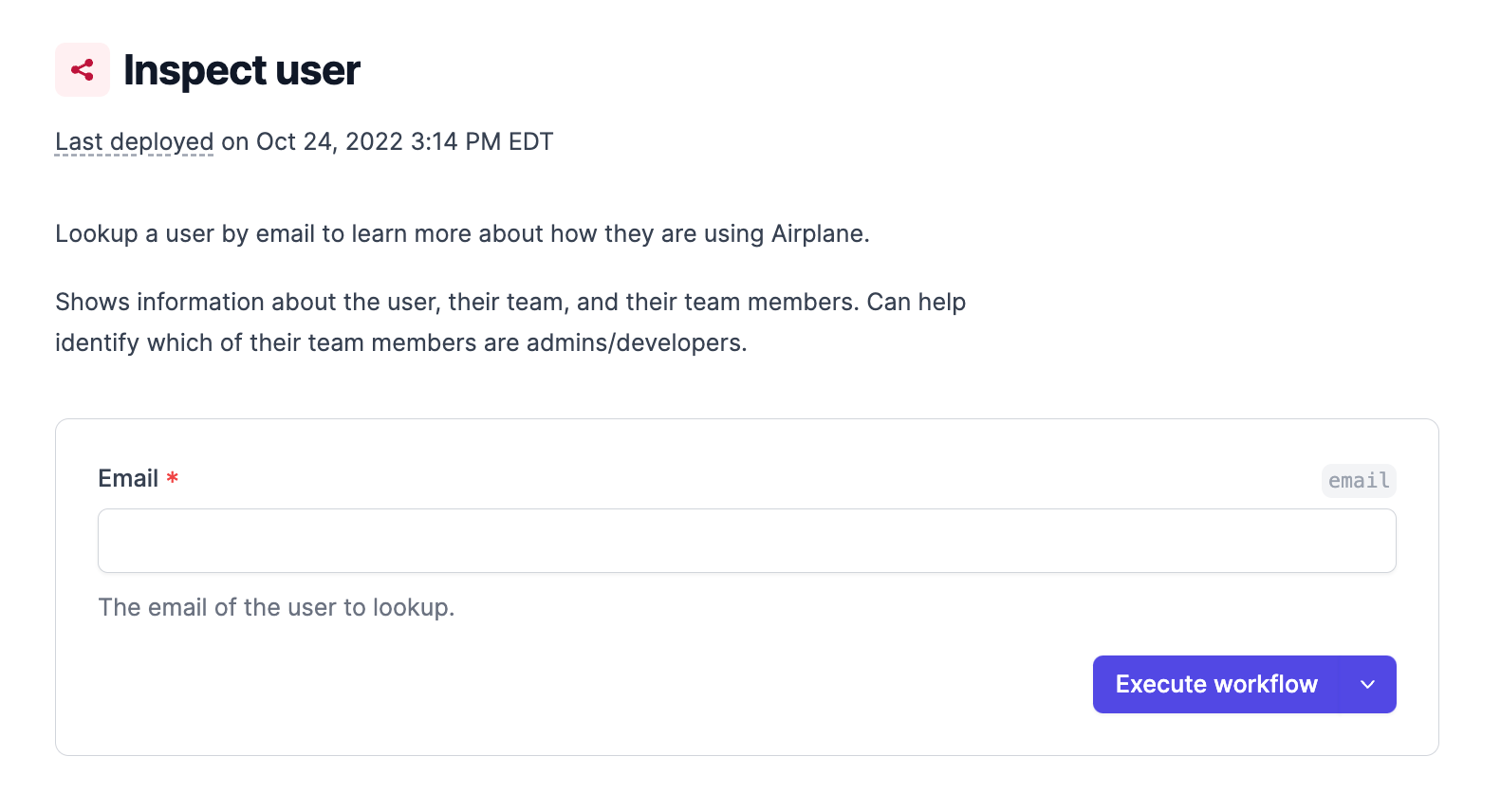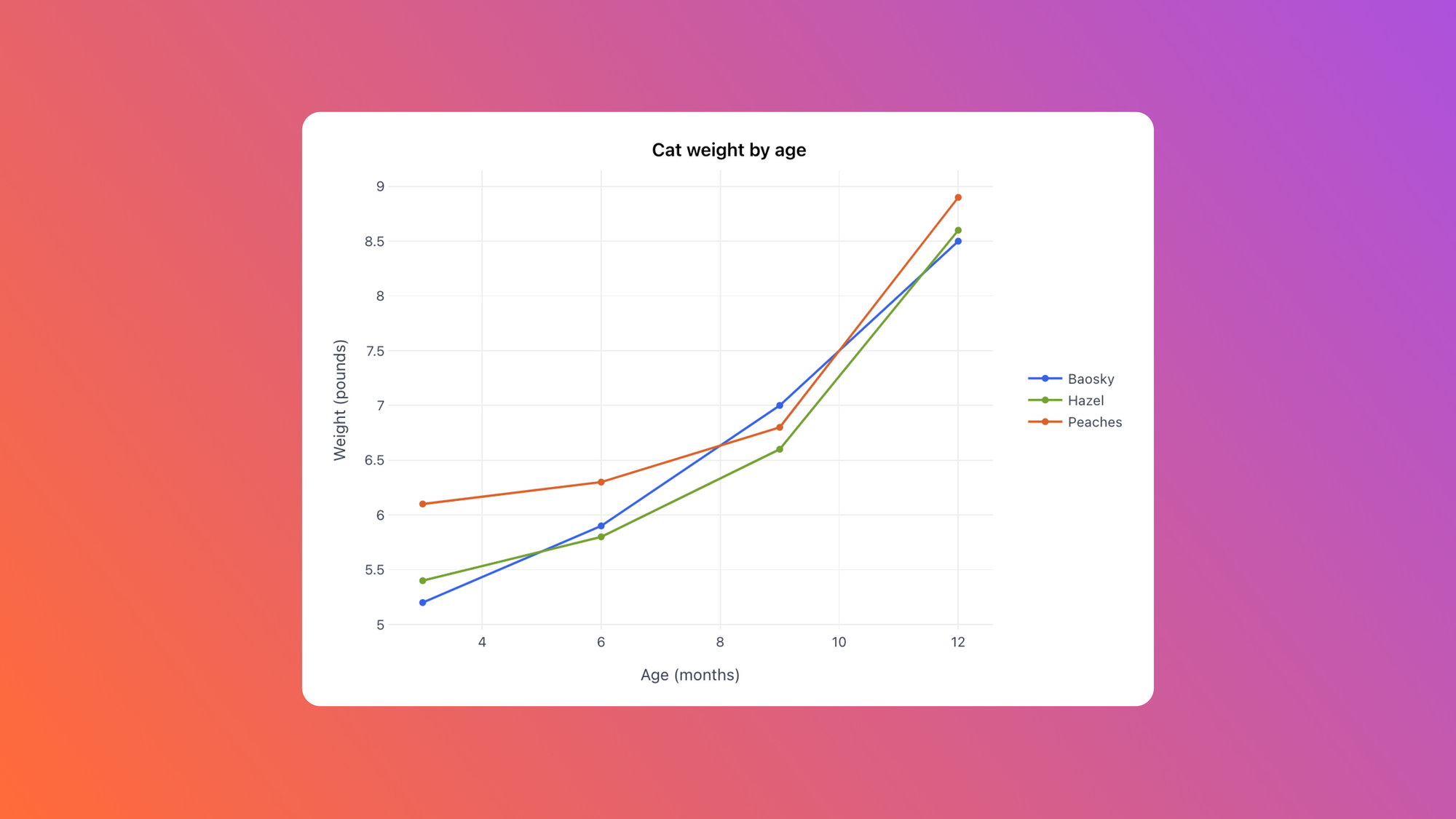Airplane lets you transform scripts, APIs, and SQL queries into UIs and workflows for your team in minutes. If you have feature requests you'd like to see in future changelogs, reply and let us know!
Since our last changelog, we've rolled out GraphQL support, added a chart component to our Views component library, revamped our templates, and added new functionality to Workflows.
GraphQL Tasks
You can now access GraphQL APIs through Airplane! Create a new standalone Task, or call it from existing Tasks and Workflows (Python & JavaScript only). Check out our docs to get started.

Charts in Views
Our new Chart component supports four different types of charts: scatter plots, line charts, bar charts, and pie charts to visualize data. We'd love to hear from you if there are other components you're looking for.

Revamped templates
The Airplane template gallery showcases a variety of use cases built using Airplane Views, Tasks, and Workflows. Browse the gallery to find inspiration through existing code samples. Leverage ready-made solutions to build your tools faster by cloning templates using the Airplane CLI.
We are constantly adding more templates. If you have a template suggestion — let us know!

Workflows private beta
We recently rolled out Workflows private beta to orchestrate multi-step operations as code and are inviting early testers to try it out! If you'd like access, please take 30 seconds to fill out the beta request form.
Airplane Workflows allows you to programmatically compose Tasks, prompt operators, and gather approvals, all in code. Instead of writing logic in declarative YAML, Workflows are written as native JavaScript (with Python coming soon). You can now parallelize work, run long-running jobs, and support sophisticated failure handling in your operations.

Improvements and fixes
- FileInput component in Views. The new FileInput component allows you to easily drag and drop files into Views. You can now access these files from Views and pass them to Tasks.
- Require agent-side constraints. You can now require that all runs scheduled on a self-hosted agent have one or more labels (
required:env:prod). This makes it easier to add new self-hosted agents and control where your operations run. See the labels on self-hosted agents section of the docs for more details.



